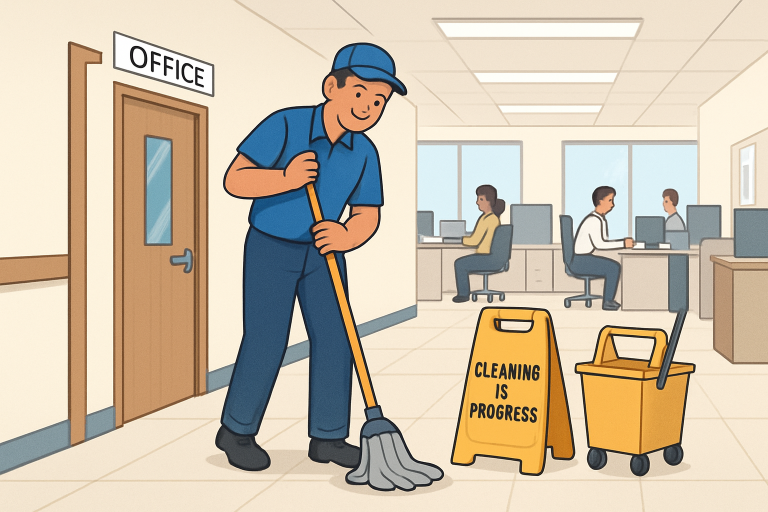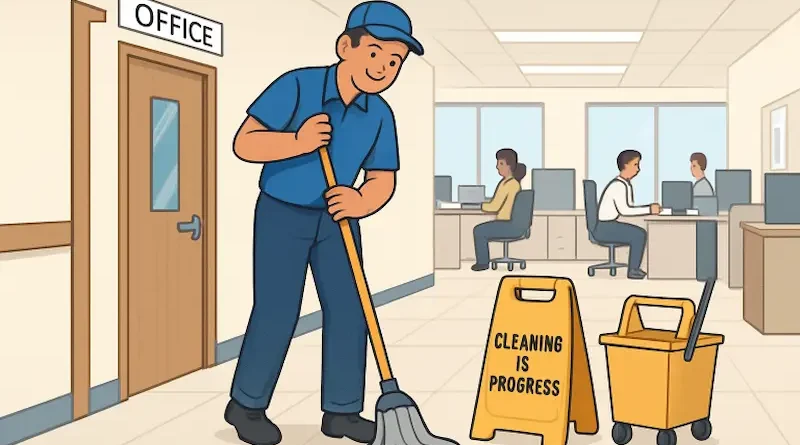How Routine Commercial Cleaning Enhances Employee Health and Wellbeing
Maintaining a clean workplace is not just about appearances—it’s a strategic investment in employee health, safety, and organizational success. Companies prioritizing regular cleaning see fewer sick days, higher employee morale, and improved productivity. Professional commercial janitorial services play a vital role in ensuring that every corner of the office contributes to a healthier and more energizing environment.
From reducing the spread of communicable diseases to promoting a positive company culture, the benefits of a well-cleaned workspace touch every aspect of business operations. Organizations that actively invest in cleanliness signal their commitment to their workforce, enhancing job satisfaction and retention.
Reducing Illness and Absenteeism
Workplace cleanliness strongly correlates with employee health outcomes. High-touch surfaces—such as doorknobs, light switches, shared desks, and computer peripherals—are primary breeding grounds for bacteria, viruses, and other pathogens. Regular, professional cleaning and disinfecting schedules help curb the spread of illnesses like the common cold, flu, and other contagious diseases. According to the CDC, good cleaning and hygiene practices are particularly vital during cold and flu season, helping lower sick days across the organization. This proactive approach not only protects the workforce but also maintains operational efficiency.
Improving Indoor Air Quality
Poor indoor air quality, often resulting from accumulated dust, allergens, and chemical pollutants, can trigger respiratory issues and allergic reactions among staff. Routine commercial cleaning—especially with the use of HEPA vacuums and proper ventilation—removes airborne particles and prevents buildup in carpets, upholstery, and vents. Cleaner air improves concentration, reduces fatigue, and limits the occurrence of chronic respiratory symptoms, promoting better overall health for employees. As the Environmental Protection Agency highlighted, indoor air quality is a significant factor in workplace wellbeing and must be managed deliberately.
Enhancing Mental Wellbeing
The physical state of an office has a profound effect on mental health. Clutter, grime, and disorganization can elevate stress levels, reduce motivation, and contribute to feelings of anxiety among employees. In contrast, an orderly and meticulously cleaned workspace allows for a sense of control and calm, fostering better focus and psychological comfort. Studies show that employees in clean environments exhibit superior cognitive function and report lower stress levels. Maintaining cleanliness signals to workers that their comfort and well-being matter to management, enhancing trust and engagement.
Boosting Employee Morale
An investment in regular cleaning services communicates corporate respect and care for employees. Workers valued by their organization generally exhibit higher job satisfaction, improved morale, and a stronger sense of loyalty. A spotless, inviting workspace also fosters pride among staff, who are more likely to keep their surroundings clean and report issues before they escalate. This positive feedback loop can encourage a culture of shared responsibility and mutual respect throughout all company levels.
Increasing Productivity
Cleanliness and productivity are closely linked. Clutter and disorganization distract from tasks, impede workflow, and sometimes block access to critical resources. Systematic cleaning schedules keep shared spaces functional and free from unnecessary obstacles. Research published by Harvard Business Review indicates that employees working in clean spaces consistently outperform those in less tidy environments, demonstrating better attention, faster problem-solving, and higher overall output levels. With fewer distractions, staff can devote their energy and creativity to core business activities.
Ensuring Safety and Reducing Hazards
Regularly maintained workplaces are inherently safer. Prompt removal of spills, proper waste management, and immediate attention to cluttered corridors or faulty equipment lower the risk of workplace accidents—ranging from slips and falls to serious electrical hazards. A clean environment ensures compliance with occupational safety regulations and reduces the long-term risk of injury-based absenteeism. According to the Occupational Safety and Health Administration (OSHA), proactive cleaning routines are integral to workplace safety protocols.

Creating Positive Impressions
For clients, customers, and job candidates, the state of your workplace is an extension of your company’s identity and standards. Clean, tidy offices create an immediate impression of professionalism, attention to detail, and trustworthiness. First impressions can affect business opportunities, client confidence, and your organization’s competitive edge. Visitors are more likely to develop favorable opinions of companies that value cleanliness and order.
Long-Term Cost Savings
Well-scheduled commercial cleaning can deliver meaningful long-term savings. Regular maintenance of assets—like carpets, electronics, HVAC systems, and furniture—prevents premature wear and the need for costly repairs or replacements. Healthy employees translate to fewer health insurance claims and reduced absentee-related expenses. In the long run, investing in cleaning services results in lower overhead and greater financial resilience, giving organizations more flexibility to grow and innovate.
To maximize these benefits, companies should consider working with reputable commercial cleaning providers and develop cleaning plans tailored to their specific needs.
Final Thoughts
Routine commercial cleaning is far more than a routine task—it’s a foundation for a robust, successful organization that values its people and reputation. By investing in thorough and regular cleaning, businesses can ensure a healthier, more productive, and positive workplace for all employees.
Visit the rest of the site for more interesting and useful articles.

